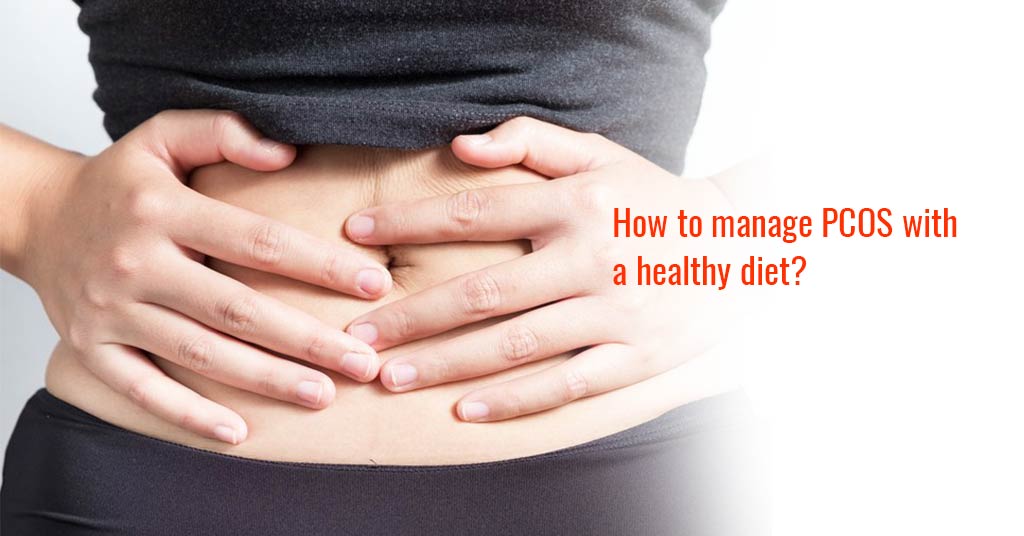Lifestyle Changes to Treat PCOD (Polycystic Ovarian Disease)
Polycystic Ovarian Disease (PCOD) is a common hormonal disorder affecting many women of reproductive age. Managing PCOD involves not just medical treatment but also significant lifestyle changes. Here are some effective lifestyle adjustments that can help in managing and treating PCOD:
1. Adopt a Balanced Diet
A well-balanced diet is crucial for managing PCOD. Focus on:
• Low Glycemic Index (GI) Foods: Opt for whole grains, legumes, and vegetables that have a low GI, as they cause a slower rise in blood sugar levels, helping to regulate insulin levels.
• Lean Proteins: Include lean sources of protein like chicken, fish, tofu, and legumes to keep you full longer and maintain stable blood sugar levels.
• Healthy Fats: Incorporate healthy fats such as those from avocados, nuts, seeds, and olive oil, which can help manage inflammation and support hormonal balance.
• Fiber-Rich Foods: Increase your intake of fiber through fruits, vegetables, and whole grains to improve digestion and insulin sensitivity.
2. Regular Physical Activity
Exercise plays a vital role in managing PCOD by:
• Reducing Insulin Resistance: Engaging in regular physical activity, including both aerobic exercises (like walking, running, swimming) and strength training, can improve insulin sensitivity and help manage blood sugar levels.
• Weight Management: Exercise aids in maintaining a healthy weight, which is important as excess weight can exacerbate PCOD symptoms.
• Balancing Hormones: Regular exercise can help regulate menstrual cycles and reduce symptoms of PCOD by balancing hormone levels.
3. Stress Management
Chronic stress can worsen PCOD symptoms by affecting hormonal balance. Effective stress management techniques include:
• Mindfulness and Meditation: Practices like meditation, deep breathing, and yoga can reduce stress levels and improve overall well-being.
• Adequate Sleep: Aim for 7-8 hours of quality sleep per night, as poor sleep can contribute to hormonal imbalances and insulin resistance.
4. Weight Management
Maintaining a healthy weight is essential in managing PCOD. Even a small reduction in body weight (5-10%) can improve symptoms. Focus on gradual, sustainable weight loss through:
• Healthy Eating: Adopt a diet that is rich in whole foods, low in processed foods, and balanced in nutrients.
• Regular Exercise: Combine cardiovascular exercises with strength training to support weight loss and improve metabolic health.
5. Avoid Smoking and Limit Alcohol
Smoking and excessive alcohol consumption can worsen PCOD symptoms and contribute to insulin resistance. Quitting smoking and moderating alcohol intake can have a positive impact on your hormonal health and overall well-being.
6. Regular Health Check-Ups
Regular monitoring of your health is essential when managing PCOD. Work closely with your healthcare provider to:
• Monitor Blood Sugar and Cholesterol Levels: Regular checks can help prevent complications associated with PCOD, such as diabetes and cardiovascular disease.
• Track Menstrual Cycle and Symptoms: Keeping a record of your menstrual cycle and any symptoms can help your doctor adjust your treatment plan effectively.
7. Supplementation
Certain supplements may help in managing PCOD symptoms, such as:
• Inositol: This supplement has been shown to improve insulin sensitivity and restore regular menstrual cycles in women with PCOD.
• Vitamin D: Many women with PCOD have low levels of vitamin D. Supplementing with vitamin D can improve insulin sensitivity and support overall hormonal balance.
• Omega-3 Fatty Acids: Found in fish oil supplements, these can help reduce inflammation and improve insulin sensitivity.
Making these lifestyle changes can significantly improve the management of PCOD and enhance your quality of life. Remember to consult with a healthcare provider before making any significant changes to your diet, exercise routine, or supplement regimen.








